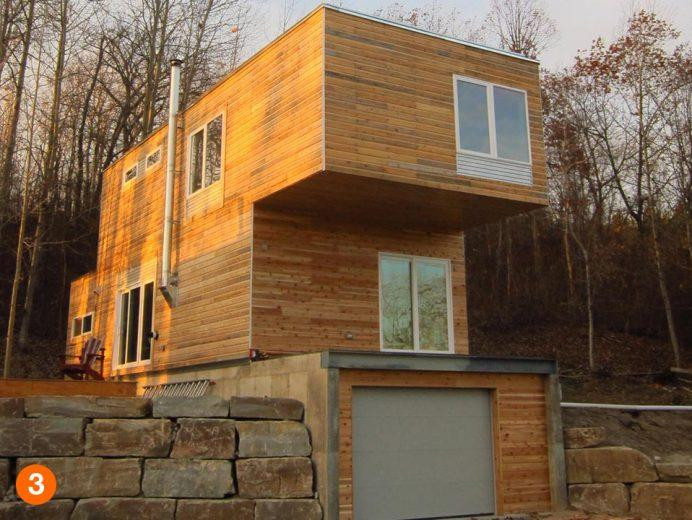The demand for affordable and sustainable housing options has never been greater. In this context, affordable modular homes are rapidly gaining popularity as an innovative and eco-friendly solution to the housing crisis. These homes are designed and constructed with efficiency, sustainability, and affordability in mind. In this guide, we'll explore the world of affordable modular homes, their benefits, and why they're considered the future of housing.
Understanding Affordable Modular Homes
Modular Construction
Modular homes are built in a factory setting, where each module or section of the house is constructed individually. These modules are then transported to the construction site and assembled to create the final home. The precision and efficiency of this process reduce construction time and costs, making modular homes an affordable housing solution.
Sustainability
Sustainability is a core element of affordable modular homes. These homes are designed to be energy-efficient, utilizing eco-friendly materials and construction practices. By minimizing waste, reducing energy consumption, and often incorporating renewable energy sources, modular homes contribute to a more sustainable future.
Customization
One common misconception is that modular homes lack flexibility and personalization. On the contrary, modular homes offer a wide range of designs, floor plans, and customization options to meet the specific needs and preferences of homeowners.
The Benefits of Affordable Modular Homes
Cost-Efficiency
Affordable modular homes are often more cost-effective than traditional site-built homes. The controlled environment of the factory allows for more efficient construction processes, reducing labor and material costs. This cost savings is often passed on to the homeowner, making modular homes an attractive option for those on a budget.
Speed of Construction
Modular homes are built faster than traditional homes. Since construction occurs in a factory setting, weather delays are minimized, and multiple modules can be constructed simultaneously. This results in quicker move-in times, allowing homeowners to enjoy their new space sooner.
Energy Efficiency
Affordable modular homes are designed with energy efficiency in mind. Features such as high-quality insulation, energy-efficient windows, and advanced HVAC systems contribute to lower energy bills and reduced environmental impact.
Quality Control
Modular homes undergo rigorous quality control checks throughout the construction process. This ensures that each module meets high standards for both structural integrity and aesthetic appeal. The controlled factory environment reduces the potential for errors, making modular homes a reliable and durable housing option.
Sustainability
Sustainability is a key advantage of affordable modular homes. Green building practices, energy-efficient appliances, and the use of recycled or sustainable materials are common in modular construction. Furthermore, many modular homes can be designed to accommodate solar panels and other renewable energy sources, reducing the home's carbon footprint.
Customization
Homebuyers have the flexibility to customize their modular homes to suit their unique preferences and needs. Whether it's choosing floor plans, interior finishes, or exterior design elements, modular homes offer a wide range of options for personalization.
The Future of Housing
Affordable modular homes are poised to play a significant role in the future of housing for several reasons:
Addressing the Housing Crisis
Affordable housing is a pressing global issue. Modular homes provide a solution that is both cost-effective and efficient, helping to address the housing crisis by providing accessible housing options for a broader range of individuals and families.
Sustainable Living
With growing concerns about climate change and environmental sustainability, modular homes offer a more eco-friendly and energy-efficient way of living. As sustainability becomes increasingly important, modular construction aligns with the values of a greener future.
Innovation and Technology
Advancements in construction technology are driving the development of modular homes. These innovations include more energy-efficient building materials, smarter home automation, and increased durability. Modular homes are at the forefront of this technological evolution in the housing industry.
Cost Savings
Rising construction costs have made homeownership less attainable for many individuals and families. Modular homes, with their cost-efficiency and reduced construction time, provide a more affordable path to homeownership.
Customization and Quality
The idea that modular homes are cookie-cutter structures is outdated. Today, they offer a wide range of customization options, allowing homeowners to create the space that suits their lifestyle and tastes. The controlled factory environment ensures quality and consistency in construction.
Challenges and Considerations
While affordable modular homes offer numerous advantages, it's important to consider a few challenges:
Land and Zoning
The availability of suitable land and adherence to local zoning regulations can pose challenges when considering modular home placement. It's essential to research local regulations and land availability before proceeding.
Transportation Costs
The transportation of modular home modules to the construction site can be costly, especially if the site is located a significant distance from the factory. These transportation costs should be factored into the overall budget.
Financing
Securing financing for modular homes may differ from traditional mortgages. It's advisable to work with lenders experienced in modular home financing.
For more info :-
Modern Modular Buildings In Texas
Modern Design Modular Homes In Texas





Comments